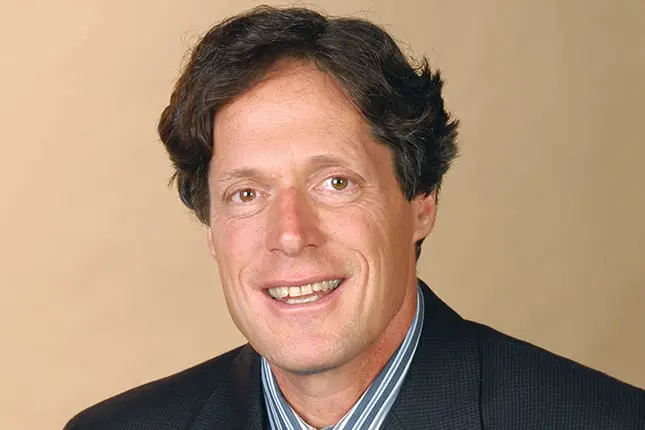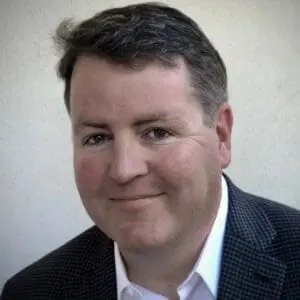Enjoy the audio preview version of this article—perfect for listening on the go.
A new calendar inspires many to turn over a new leaf. For some of us, this may mean learning to turn the other cheek. In recent years, the biological benefits of forgiveness have been widely publicized: lower blood pressure and cholesterol, better sleep, and an improved immune system. Psychologically, people who forgive show lower levels of depression, anxiety, and anger, enjoy better relationships, and report higher levels of optimism and happiness. Sounds great, so why is forgiveness so damn difficult?
Frederic Luskin has some interesting thoughts on that subject. As director of the Stanford Forgiveness Project, he’s studied forgiveness for the past 20 years. He authored Forgive for Good: A Proven Prescription for Health and Happiness and has shared his wisdom with survivors in Northern Ireland, as well as those at Ground Zero in Manhattan.
Since he’s an expert on the psychology of forgiveness and on therapeutic pathways to achieving it, we thought the beginning of the year might be an especially good time to hear from him.
——
RH: How did you become interested in forgiveness?
Luskin: In addition to the pain of being badly hurt by a close friend without having any idea how to deal with it, I needed to find a dissertation topic when I was graduating from Stanford. This was before there was a lot of research about forgiveness. I thought what I learned about getting over my own wounding might have a broader application, and it just seemed like a good opportunity to bring more psychological understanding to something that’s traditionally been such a spiritual concept.
RH: I’m reminded of the Alexander Pope quote: “To err is human; to forgive, divine.” Do we equate forgiveness with spirituality or God more than we do other virtues?
Luskin: I think so, because it’s so difficult. The human tendency is to deliver payback for any hurt that’s been experienced.
RH: The “divine” part of that statement suggests that it requires supernatural strength to forgive.
Luskin: I don’t believe that. I think it takes something more than the essential selfishness that most of us operate out of, but I don’t think it’s divine to understand that you don’t want somebody else to suffer just because you’ve suffered.
RH: As you’ve seen, it’s terribly difficult for a lot of people.
Luskin: That’s part of the reason why the research that we did is so important. Making a connection between enhancing one’s health and forgiveness gives people additional motivation to do something that they might not do otherwise. People may not worry about whether they’re going to heaven, but at least forgiveness reduces their blood pressure and their chance of having a heart attack.
RH: Your work calls into question several beliefs about forgiveness. I’ll toss out a few true-or-false statements here: “Forgiveness means forgetting.”
Luskin: That’s false. It’s actually remembering differently. While lack of forgiveness is remembering something with an edge or a grudge or a sense of injustice, forgiveness means remembering it more benignly, with compassion. It involves some purpose of moving ahead, rather than just being stuck in the past.
RH: “Forgiveness requires repentance from the other.”
Luskin: The fact is that you can forgive someone who’s dead. So it can’t require that.
RH: Isn’t it easier to forgive when the other person is repentant?
Luskin: Certainly, if somebody is really apologetic and takes responsibility—“My bad. I really hurt you. No excuses.” Then forgiveness is easier. It’s not just bad because you got hurt, but I did something wrong.
When someone says, “I’m sorry because you’re hurt,” well, that can make the person who’s been injured feel at fault because they were hurt.
That’s an offensive kind of apology. It’s different when you say: “Boy, I did wrong, independently of whether or not you got hurt. I also see how that wrong has impacted you, and I’m sorry for that.”
So there are two steps—“I did wrong, and that wrong hurt you.” Then the next step is, “Since it’s my responsibility, what can I do to make it better for you?” That’s a true apology, and that makes a real difference.
RH: Is that because it validates the feelings of the victim?
Luskin: Always.
RH: It says, yes, it really was your fault, I don’t have to blame myself or take some of that responsibility. You’re taking it.
Luskin: Well, you still have responsibility for living your life and moving on, but at least that person has said that they’re a significant contributor to the distress and the tears.
RH: Another belief: “Forgiveness is a one-time thing.”
Luskin: No. It’s a process we do over and over. Sometimes you’re reminded of painful situations when you least expect it. Sometimes the person comes back into your life, or you’re just remembering what they did and you have to go through it again.
RH: One final statement: “Forgiveness means everything returns to the way things were.”
Luskin: Sometimes it returns to the way it was, but sometimes you can’t go back. After all, how can you go back if someone close to you has been murdered? Nevertheless, if somebody makes a mistake and they say they’re sorry and ask forgiveness, you can go back to the same type of relationship that you had.
RH: I heard a talk at which you said: “Forgiveness is the experiencing of being at peace right now, no matter what happened five minutes or five years ago.” How is peace related to forgiveness?
Luskin: What is forgiveness except the experience of peace around your own life? It’s acknowledging that you’re OK. Forgiveness is all about people’s perception of their life. If I feel bad, that’s my experience. Just because bad things happen doesn’t mean that I have to behave badly. Understanding that can make a huge difference for many people.
RH: Why do you think we have such a tendency to perpetuate the bad?
Luskin: Part of that is the way our neurology is wired to look for things that are wrong in order to keep us safe. Part of it is the way many cultures foster revenge, retribution, payback, and total self-absorption.
RH: I’ve noticed that victimhood can make people feel like they’re in a position of power, one that they’re reluctant to give up.
Luskin: But feeling resentful and victimized is a highly limited form of power. The price you pay is feeling perpetually uncomfortable and off center. We get angry when life isn’t working; we don’t get angry when life is working.
If you see people who are angry or who are nursing a long-standing grudge, it’s probably because their life isn’t working, and they don’t know what else to do. The whole task of forgiveness comes down to redirecting energy from a preoccupation with helpless resentment to finding a better way to live one’s life.
Ryan Howes
Ryan Howes, Ph.D., ABPP is a Pasadena, California-based psychologist, musician, and author of the “Mental Health Journal for Men.” Learn more at ryanhowes.net.













